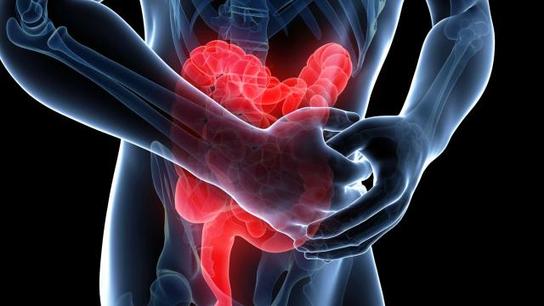Relapse Risk Up With Low Vitamin D Levels in Ulcerative Colitis

For patients with ulcerative colitis, serum vitamin D levels ≤35 ng/mL are associated with increased risk of clinical relapse, according to a study published in the February issue of Clinical Gastroenterology and Hepatology.
WEDNESDAY, Feb. 1, 2017 (HealthDay News) -- For patients with ulcerative colitis (UC), serum vitamin D levels ≤35 ng/mL are associated with increased risk of clinical relapse, according to a study published in the February issue of Clinical Gastroenterology and Hepatology.
John Gubatan, M.D., from the Beth Israel Deaconess Medical Center in Boston, and colleagues conducted a prospective study involving 70 patients with UC in clinical remission who were followed after a surveillance colonoscopy. The rate of clinical relapse was assessed over 12 months as the primary outcome.
The researchers found that patients with relapse had a lower mean baseline vitamin D level than those without relapse (29.5 versus 50.3 ng/mL; P = 0.001). Independent of endoscopic or histologic grade at enrollment, remission vitamin D level of ≤35 ng/mL correlated with the risk of clinical relapse over 12 months (odds ratio, 1.25; 95 percent confidence interval, 1.01 to 1.56; P = 0.044). The area under the receiver operating characteristic curve of vitamin D levels for the outcome of relapse was 0.72. A serum level of ≤35 ng/mL had sensitivity and specificity of 70 (95 percent confidence interval, 46 to 88 percent) and 74 percent (95 percent confidence interval, 57 to 83 percent), respectively, for predicting risk of clinical relapse.
"Serum levels of vitamin D of 35 ng/mL or less during periods of clinical remission increase the risk of UC relapse," the authors write. "Clinical trials to obtain vitamin D levels higher than this threshold should be considered."
http://www.doctorslounge.com/index.php/news/pb/69690
WEDNESDAY, Feb. 1, 2017 (HealthDay News) -- For patients with ulcerative colitis (UC), serum vitamin D levels ≤35 ng/mL are associated with increased risk of clinical relapse, according to a study published in the February issue of Clinical Gastroenterology and Hepatology.
John Gubatan, M.D., from the Beth Israel Deaconess Medical Center in Boston, and colleagues conducted a prospective study involving 70 patients with UC in clinical remission who were followed after a surveillance colonoscopy. The rate of clinical relapse was assessed over 12 months as the primary outcome.
The researchers found that patients with relapse had a lower mean baseline vitamin D level than those without relapse (29.5 versus 50.3 ng/mL; P = 0.001). Independent of endoscopic or histologic grade at enrollment, remission vitamin D level of ≤35 ng/mL correlated with the risk of clinical relapse over 12 months (odds ratio, 1.25; 95 percent confidence interval, 1.01 to 1.56; P = 0.044). The area under the receiver operating characteristic curve of vitamin D levels for the outcome of relapse was 0.72. A serum level of ≤35 ng/mL had sensitivity and specificity of 70 (95 percent confidence interval, 46 to 88 percent) and 74 percent (95 percent confidence interval, 57 to 83 percent), respectively, for predicting risk of clinical relapse.
"Serum levels of vitamin D of 35 ng/mL or less during periods of clinical remission increase the risk of UC relapse," the authors write. "Clinical trials to obtain vitamin D levels higher than this threshold should be considered."
http://www.doctorslounge.com/index.php/news/pb/69690
